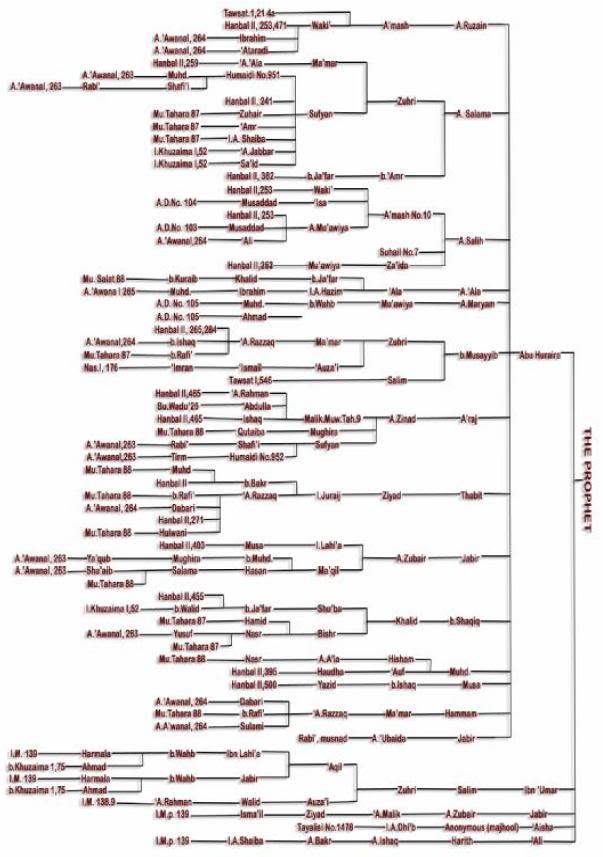It is a description of Hadith.
These were stories passed down from generation to generation, then over 200 years later were written down. That is why there is debate between people on whether certain Hadith are genuine or not because the way that it is determined is based on who is believed to have told the story to someone else who told someone else who told someone else, etc.
That is why you will also find "Quran only" Muslims who do not follow them because they do not believe they are accurate, although the vast majority of Muslims do. Shia and Sunni also follow different Hadith because they find different people reliable.
These were stories passed down from generation to generation, then over 200 years later were written down. That is why there is debate between people on whether certain Hadith are genuine or not because the way that it is determined is based on who is believed to have told the story to someone else who told someone else who told someone else, etc.
That is why you will also find "Quran only" Muslims who do not follow them because they do not believe they are accurate, although the vast majority of Muslims do. Shia and Sunni also follow different Hadith because they find different people reliable.

